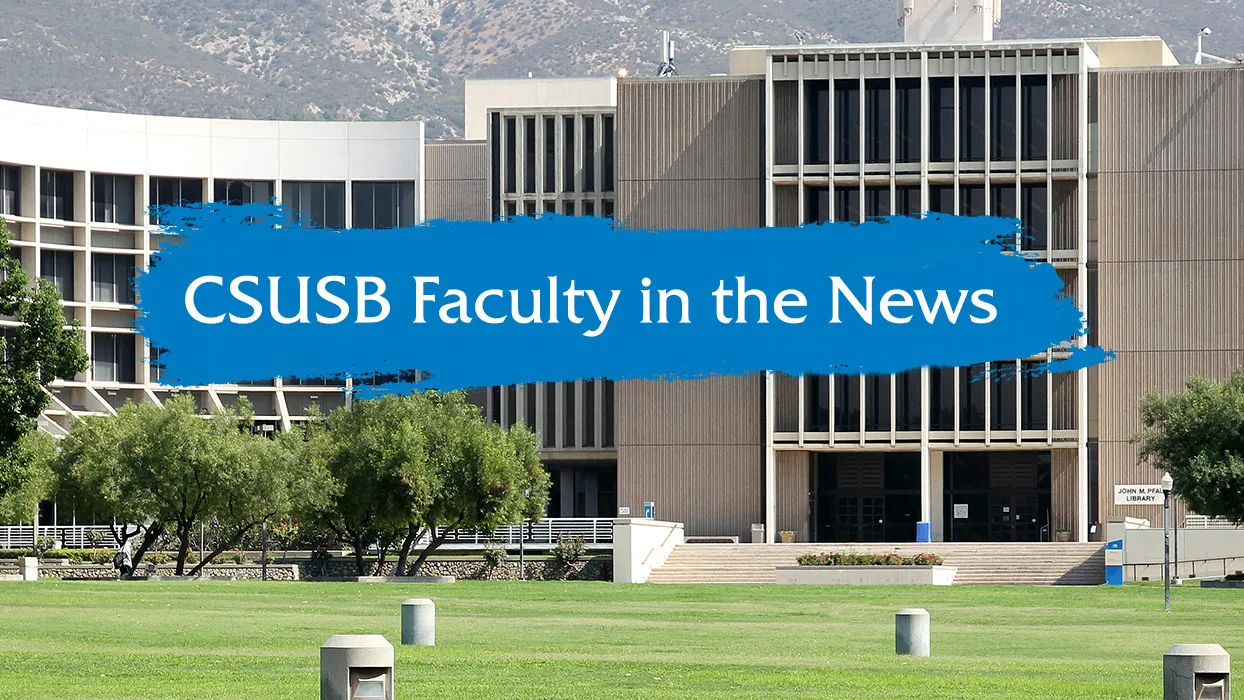NOTE: Faculty, if you are interviewed and quoted by news media, or if your work has been cited, and you have an online link to the article or video, please let us know. Contact us at news@csusb.edu.
CSUSB professor discusses increase in Islamophobia that followed Sept. 11 attacks
The Orange County Register/Southern California News Group
Sept. 8, 2021
In the past two decades since the Sept. 11 attacks, the Muslim community has launched a significant, multi-pronged response to confront misunderstandings about their faith and culture. Imams and community leaders became much more active in interfaith programs. Mosques opened their doors to all, welcoming their neighbors on special holidays such as during the month of Ramadan — sharing meals, stories and knowledge.
Despite work on many fronts to address Islamophobia in the U.S., anti-Muslim hate crimes that surged to record highs after 9/11 never returned to “pre-attack levels,” said Brian Levin, director of the Center for the Study of Hate and Extremism at Cal State San Bernardino.
According to Levin, hate crimes against Muslims, Arabs and others, such as members of the Sikh community who were perceived as Muslims or as bearing resemblance to the 9/11 attackers, combined to make 2001 the worst year for overall hate crime since the FBI began to record such activity in 1992.
Since 2001, the FBI reports, Muslims have been the second-most targeted group for hate crimes motivated by religion following Jews, who in 2018 accounted for 12% of all hate crime.
Levin said over the past 20 years, spikes in hate crimes against Muslims appeared to correspond not just to terror attacks involving individuals with Muslim names, but also to derisive statements made by politicians and media references tied to those events.
He pointed out some of the events that led to surges in hate crimes against Muslims including the December 2015 terror attack in San Bernardino, the Pulse night club shooting in June 2016, then-presidential candidate Donald Trump’s rhetoric leading up to the November 2016 election, and former President Trump’s proposed Muslim travel ban in 2017.
Read the complete article at “American Muslims recall how hate and scrutiny after 9/11 changed their lives.”
CSUSB professor interviewed for article on America’s growing divide since Sept. 11, 2001
Redlands Daily Facts/Southern California News Group
Sept. 9, 2021
An article examining how America has grown more divided since the Sept. 11, 2001, attacks through the COVID-19 pandemic included an interview with Brian Levin, director of the Center for the Study of Hate & Extremism at Cal State San Bernardino.
Whatever solidarity existed early on during these crises was — as Levin described it recently — a “sandcastle of unity”: porous and short-lived.
Read the complete article at “Once united, America has grown more divided since 9/11 attacks.”
These news clips and others may be viewed at “In the Headlines.”
